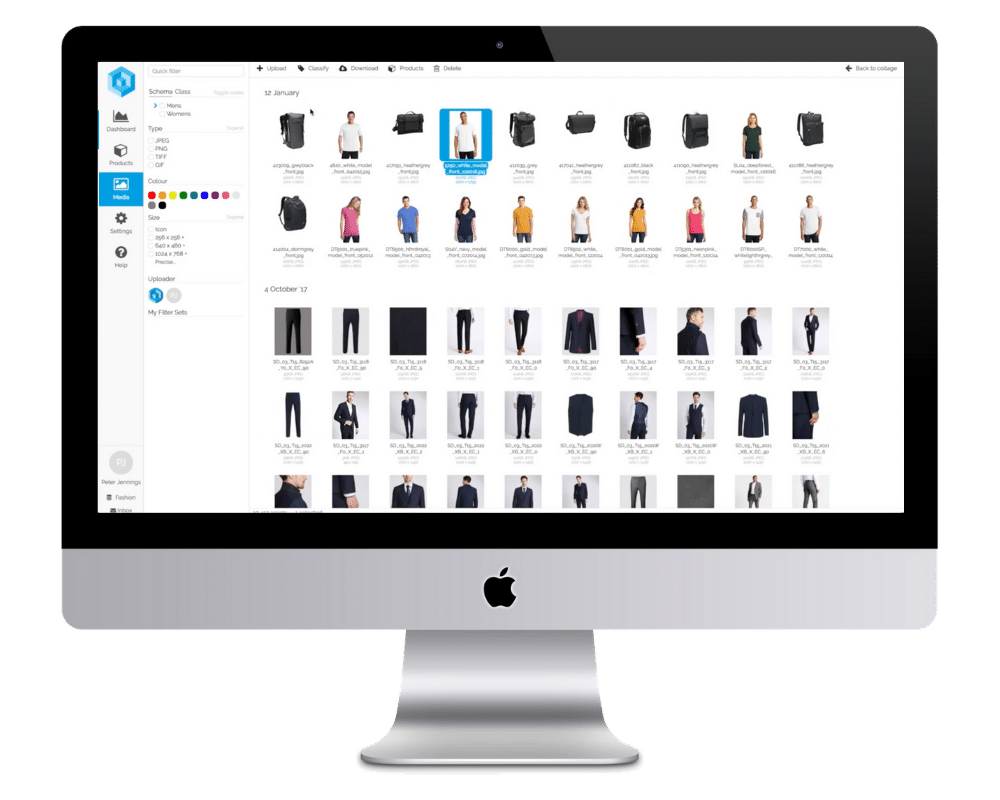1) eCommerce platforms
In a time not so long ago, manufacturers had limited ways to sell directly to their customers. You needed to find a distributor or attempt to sell your products to merchandisers at chain retailers or direct-to boutique shops. However, in recent years, eCommerce has revolutionized the way you connect with customers. In addition, eCommerce platforms offer unparalleled reach and accessibility. They enable you to not only showcase your products to a global audience, but also sell directly to them.
You can eliminate the middle person, saving you time and putting more profits in your pocket.
Establishing a strong online presence through your own web stores or third-party platforms is integral. In other words, you need an efficient, cost-effective method to reach both business-to-consumer (B2C) and business-to-business (B2B) customers.
You have the resources to achieve global reach, access data-driven insights, and make direct customer contact and sales in a far more cost-effective way than traditional wholesale methods.
2) Direct sales/account management
Maintaining a strong direct sales and account management team is crucial for manufacturers, especially in B2B sales. This channel relies on old school methods of building and nurturing relationships with key customers, distributors, wholesalers, and retailers.
You are selling directly to your B2B customers enabling you to provide personalized solutions and negotiate deals tailored to the specific needs of your clients. As a result, your team becomes consultants who work with customers as opposed to salespeople.
They ask critical questions about clients’ needs, so they become an expert offering solutions that will increase efficiency or contribute to cost savings. In turn, you gain better communication with customers enabling you to provide personalized experiences.
It’s about building relationships that optimize experiences creating a more positive sentiment that is more likely to transform a sale into a loyal customer.
Finally, you have more control over your brand, maintaining the integrity of your product descriptions, sell sheets, and other marketing collateral that often gets white or even greenwashed in traditional B2B sales scenarios. Today, B2B customers are looking for the same personalized experiences they encounter in their B2C experiences.
They want accurate information, whether it is product details, real-time inventory levels when placing orders, or product recommendations via upsell and cross-sell opportunities. They also like the idea of having their order history positively impact the types of offers available to them.
With control over your brand, you can implement the types of customer experiences you value and that you know will resonate with your target audience.
3) Channel partnerships and networks
Collaborating with channel partners and leveraging distribution networks is another effective way for you to expand your market presence. In turn, this approach forges strategic alliances with distributors, wholesalers, and retailers.
These all have established networks and customer bases in your target market. Through co-branding opportunities, you can tap into these partnerships to rapidly scale your sales and distribution capabilities.
Partnerships and networks enable you to:
Achieve more with less
With the right partners, you can achieve more for your business with fewer resources and less effort. Because your partners want you to succeed, they often handle time-consuming and costly tasks like sales or online support. As a result, you can continue to focus on forging new partnerships, leveraging new networks, or growing your own online presence.
Leverage their brands
You gain strategic insights from partners and networks who have more experience and an established online presence that gives you a competitive edge.
Gain a mentor
You might just find the type of mentor you need to branch out and become more successful without the need for retailers. You can learn the steps required to launch new products and services or discover opportunities to fill product gaps related to partner offerings to generate new revenue streams.
Reduce risk
Going it alone increases the risk of lost revenue, investments, and missed opportunities. With partners or when acting as part of a network, the risks are shared, reducing losses and softening the blow of possible downsides.
Whether you decide to leverage eCommerce platforms, embrace direct sales and account management, forge channel partnerships, or join distribution networks, these top-performing sales channels provide ample opportunity to maximize sales and profitability.












